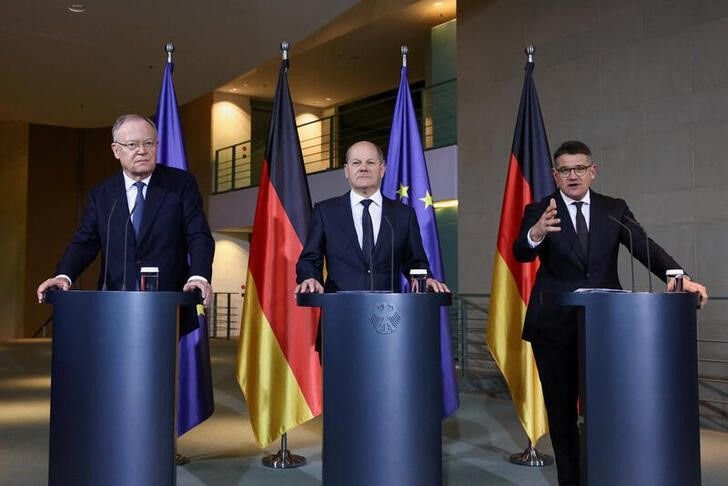Germany’s Scholz agrees on tougher migration policy with state leaders. After hours of talks early on Tuesday, Chancellor Olaf Scholz, who wants to lower the number of asylum seekers and weaken support for the far-right, agreed with the leaders of Germany’s 16 states on a more restrictive immigration policy and more financing for refugees.
In sharp contrast to Berlin’s ostensibly open-door policy under former Chancellor Angela Merkel, Scholz’s administration has agreed in recent weeks to steps that would facilitate the deportation of migrants and reduce the country’s appeal as a travel destination.
The purpose of the discussion was to address local authorities’ concerns about overcrowded public coffers and infrastructure, as well as to get support from state officials for such measures. Therefore, Scholz’s administration consented to pay an advance of 1.75 billion euros in the first half of 2024 and 7,500 euros ($8,033.25) for each refugee starting the following year.
The head of the Hesse state estimated that 3.5 billion euros will be given in overall help. Additionally, authorities want to save around 1 billion euros by reducing asylum seekers’ entitlements, such as by increasing the time it takes for them to acquire full social benefits.
“We all want to stop irregular migration,” said Scholz, who had earlier called the pact a “historic moment.”
Additionally, the federal government decided to investigate if asylum processes might be conducted outside of the EU, despite Scholz’s doubts about whether such a system could be carried out legally and whether other nations would consent.
One million Ukrainian refugees who arrived in the country after Russia’s conflict in February of last year have contributed to the rise in asylum requests and the corresponding increase in concern about migration. In the first nine months of this year, some 230,000 individuals applied for asylum in Germany—more than in 2022.
The first party to capitalize on fears over migration was the far-right Alternative for Germany, which is currently leading all three of Scholz’s center-left coalition’s parties in national surveys. The democratic forces of the nation must unite to address issues like immigration to oppose the “so-called ‘Alternative,’ which is in reality a demolition commando,” Scholz told the legislature last month.
A bill to facilitate the deportation of members of criminal groups and the conduct of house searches by police to verify the identification of migrants was approved by Scholz’s center-left cabinet last month.
Additionally, his administration has consented to amend current regulations to expedite the employment of asylum seekers and penalize human traffickers with longer prison terms.










































Comment Template